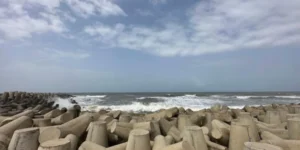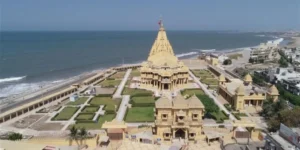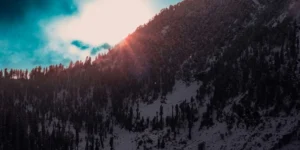Moody mountains, prayer flags fluttering in chilly winds, monasteries perched on hilltops, Tawang in Arunachal Pradesh is a paradise which marks the confluence of raw beauty and gentle spirituality. Whether you’re an adventure junkie, a seeker of peace, or just someone who loves to visit the unexplored gems, Tawang promises a trip full of stories and surprises.
Getting to Tawang is no straight drive, you earn the sight of this heaven on Earth by taking quite the road. Most visitors start from Guwahati, Assam. From there, take a taxi, rented car, or government bus up steep, winding roads past Bomdila and Dirang. The road trip covers about 480 km and takes 14–16 hours, usually split across two days for comfort and sightseeing. You’ll need an Inner Line Permit (ILP) for Arunachal Pradesh, just apply online or in Guwahati, and keep your government IDs and passport-size photos handy.
For those who want a faster option and don’t mind splurging, the Guwahati to Tawang helicopter saves hours and offers stunning aerial views, but tickets must be bought at the counter (Pro Tip: Pack light as luggage limits apply).
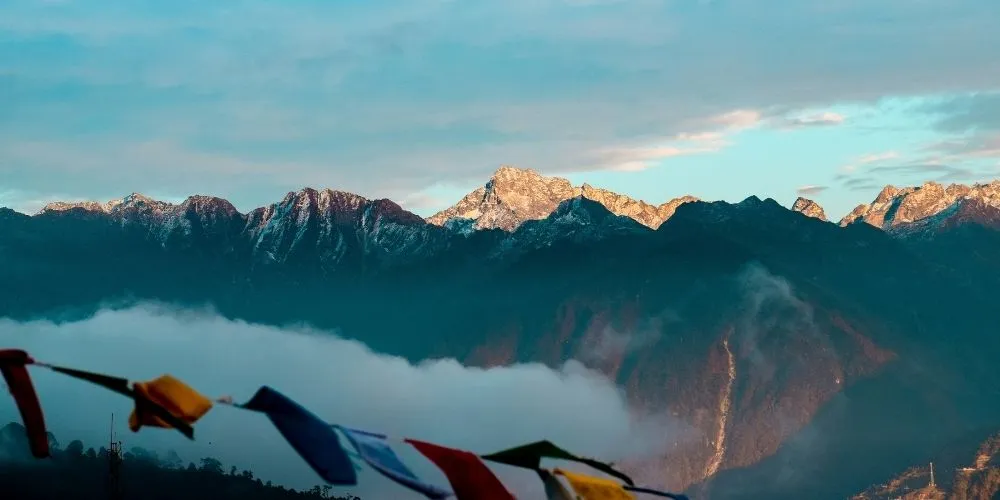
The Star Attraction: Tawang Monastery
Your list of tourist spots starts with the Tawang Monastery, one of Asia’s largest and oldest, built in the 17th century. Stunningly set above the valley, it’s home to over 300 monks and a collection of rare scriptures. Step inside its peaceful prayer halls, admire the giant statue of Buddha, visit the library, and take in sweeping views that calm the mind. The monastery shop sells souvenirs at decent rates, and you’ll find cheerful monks who love to chat.
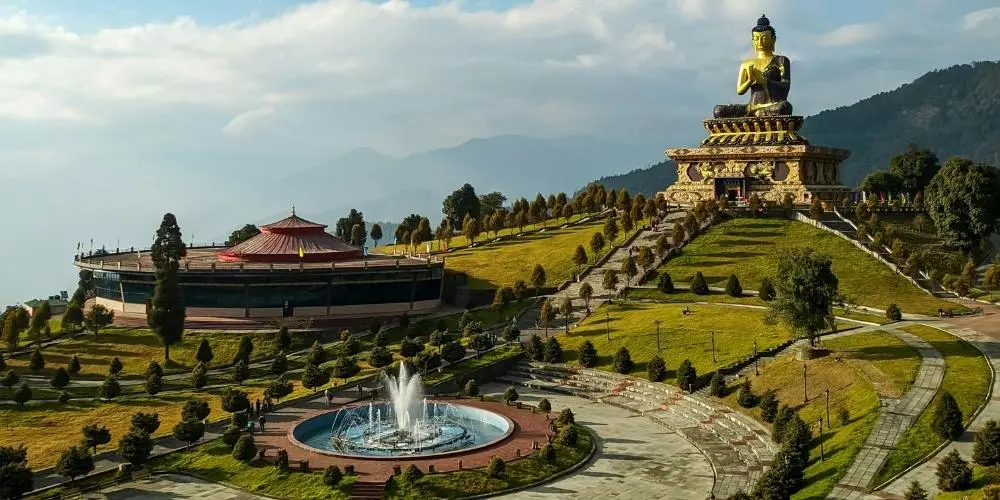
Best Time to Visit Tawang
Tawang is gorgeous but the weather can be wild. The best time to visit Tawang is from March to June and September to October. Spring brings blooming rhododendrons and lush fields, while autumn offers clear skies and festival vibes.
- Summer (April–June): Pleasant (10–25°C), best for outdoor exploring and views of snow mountains.
- Monsoon (July–September): Everything turns green, but rains may cause landslides, so check forecasts.
- Autumn (Sept–Oct): Sunny, less crowds, perfect for walking and sightseeing.
- Winter (Nov–Feb): Freezing cold, heavy snow, great for snow-lovers, but access to many places can be tricky.
Places to Visit in Tawang: Famous & Lesser-Known Destinations
- Tawang War Memorial: A touching tribute to soldiers who died in the 1962 Sino-Indian War, set up with rows of prayer flags and a small museum that brings history to life.
- Sela Pass & Sela Lake: A high-altitude gateway to Tawang at a staggering height of 13,700 fi. Even summer brings snow here, and its glacial lake sparkles with blue water.
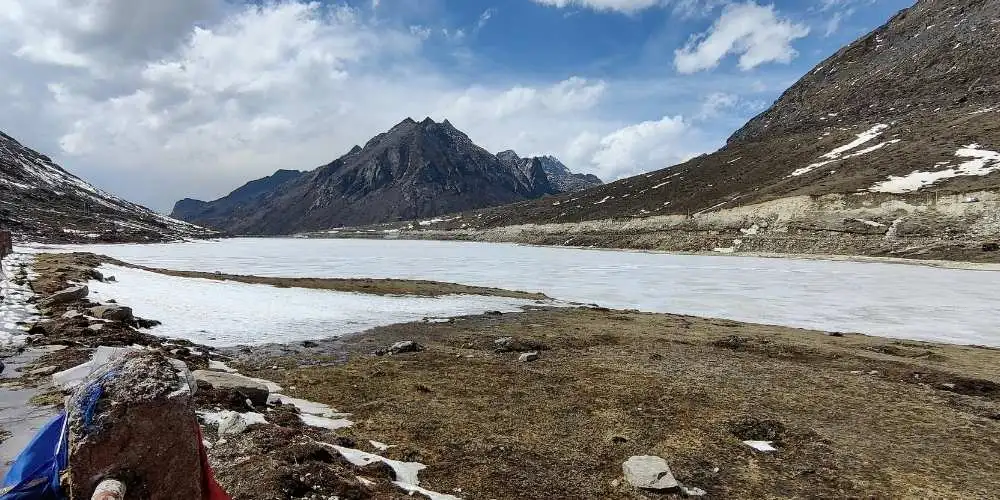
- Madhuri Lake (Sangetsar Lake): Named afier Bollywood actress Madhuri Dixit, this eerie, beautiful lake was formed by an earthquake and is surrounded by leafless trees and snow peaks.
- Nuranang Falls (Jang Falls): Lesser-known but spectacular, this 100-metre waterfall stands hidden among the hills and makes for a perfect picnic spot.
- Bum La Pass: A must visit if you love adventure and snowy border stories, permits are needed, so ask your hotel to help. This 15,200 feet pass connects India and China.
- Jaswant Garh: Another heartfelt war memorial, known for its stories of bravery and serene surroundings.
- Taktsang Gompa and Gyangong Ani Gompa: Small monasteries off the tourist radar, ideal for those who want peace and a taste of local life.
- Pankang Teng Tso & Shonga-Tser Lakes: Quiet lakes blessed with birdlife and tranquil Himalayan views.
- Chakzam Bridge and Kitpi Village: An old iron suspension bridge and blooming villages are a treat for history buffs and photographers.
Where to Stay: Properties With a View
Tawang isn’t just about sightseeing, where you stay can transform your trip. For great access and views:
- Vivanta Tawang: Stylish, modern, close to main attractions. Known for comfort, food, and friendly staff.
- Hotel Mon Valley: For those looking for warmth, good service, and lovely valley views.
- Hotel The Oak: Excellent location, panoramic views of both the monastery and valley.
- Tsewangs Bed & Breakfast Homestay: Charming, homely, and ideal for those who like authentic local hospitality.
- North Hill Home Stay: Close to the Big Buddha statue, well reviewed for service and location.
Most hotels help with arranging permits, taxis, local tours, and tips for day trips. Homestays offer deeper insight and home-cooked Arunachali meals.
Local Travel: How to Get Around
In Tawang, you can move around by local taxis (booked through your hotel or at taxi stands) or shared jeeps. Some spots, especially lakes and passes, require sturdy vehicles and a local driver who knows mountain roads well; always confirm the condition of the route during monsoons or in winter. Walking is a joy in the main town, but distances can be long, so plan accordingly.
Packing Tips: Be Mountain Smart
- Warm layered clothing (even in summer, mountain weather changes fast)
- Waterproof jacket, woollen gloves, caps, and sturdy shoes for walks
- Sunscreen and sunglasses are a must carry
- Motion sickness tablets if you’re wary of twisting roads and warm water
- Small first aid kit, ID proofs, Inter-Line Permit (ILP) copy
- Camera for capturing mind-blowing views
- Snacks; local shops can be limited in variety, so carry what you enjoy for day trips
The Takeaway Tawang Tour
Expect grand views, crisp cold air, and an easy mix of natural beauty, spirituality, history, and adventure. People are soft-spoken, ever ready to help, and genuinely proud of their town. Food is simple but tasty, try momos, thukpa (noodle soup), and spicy local curries. Evenings are silent except for prayer bells and distant drums from monasteries. The main market offers local handicrafts, woollens, and delicious tea.
Tawang isn’t just another hill town, it’s a place where you feel the pulse of the mountains in every prayer flag, every waterfall, and every story. Whether you’re meditating at Tawang Monastery, learning war history at the memorials, crossing old bridges, or just gazing at lakes, your journey will be rich, peaceful, and truly memorable. Come prepared, move slowly, breathe deep, and let Tawang cast its gentle spell on you.
By: Anushka Singhal

